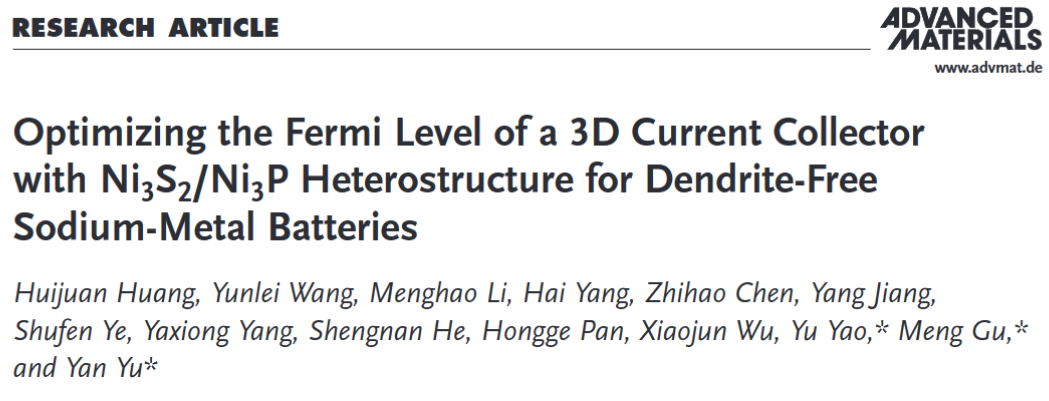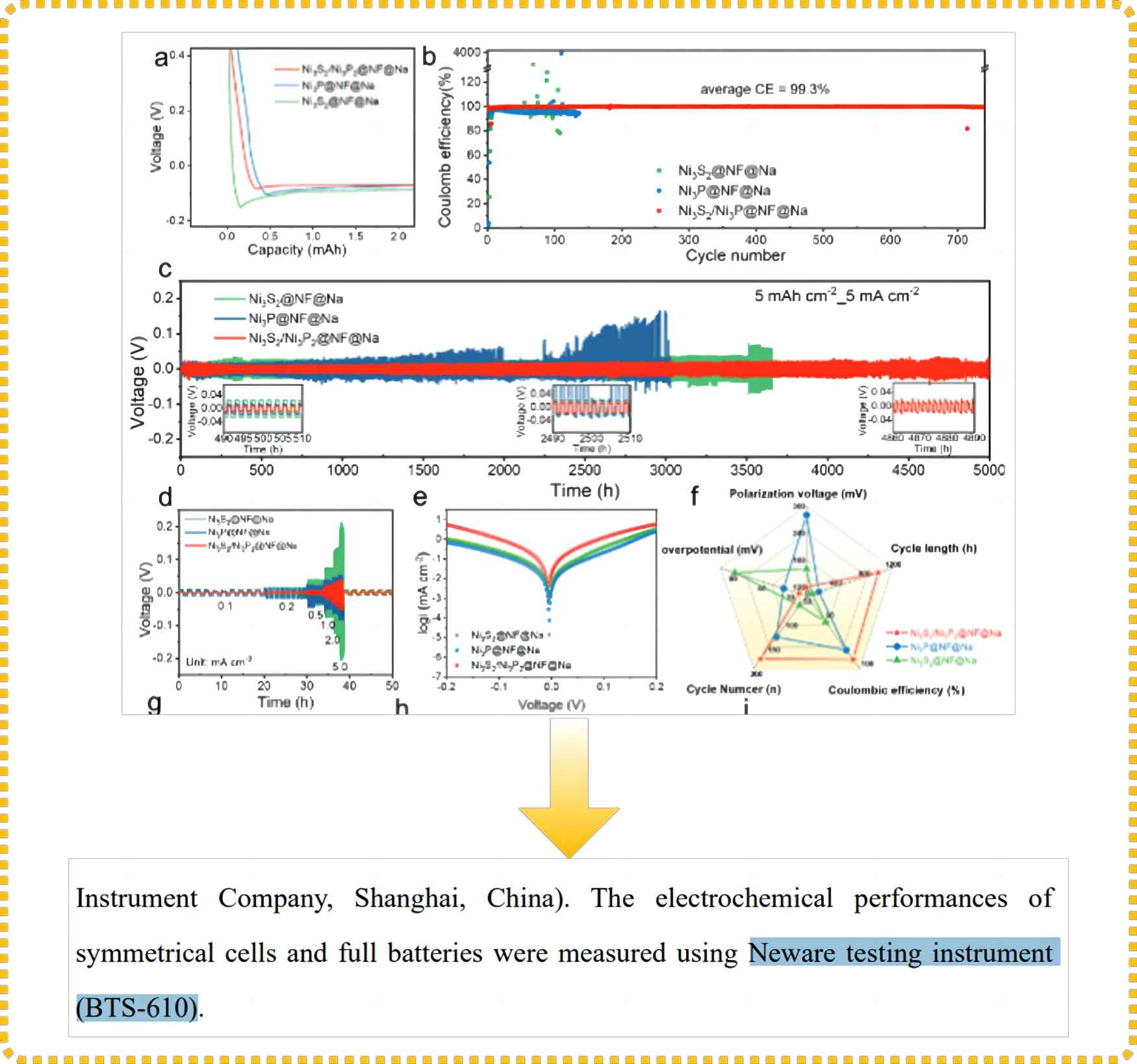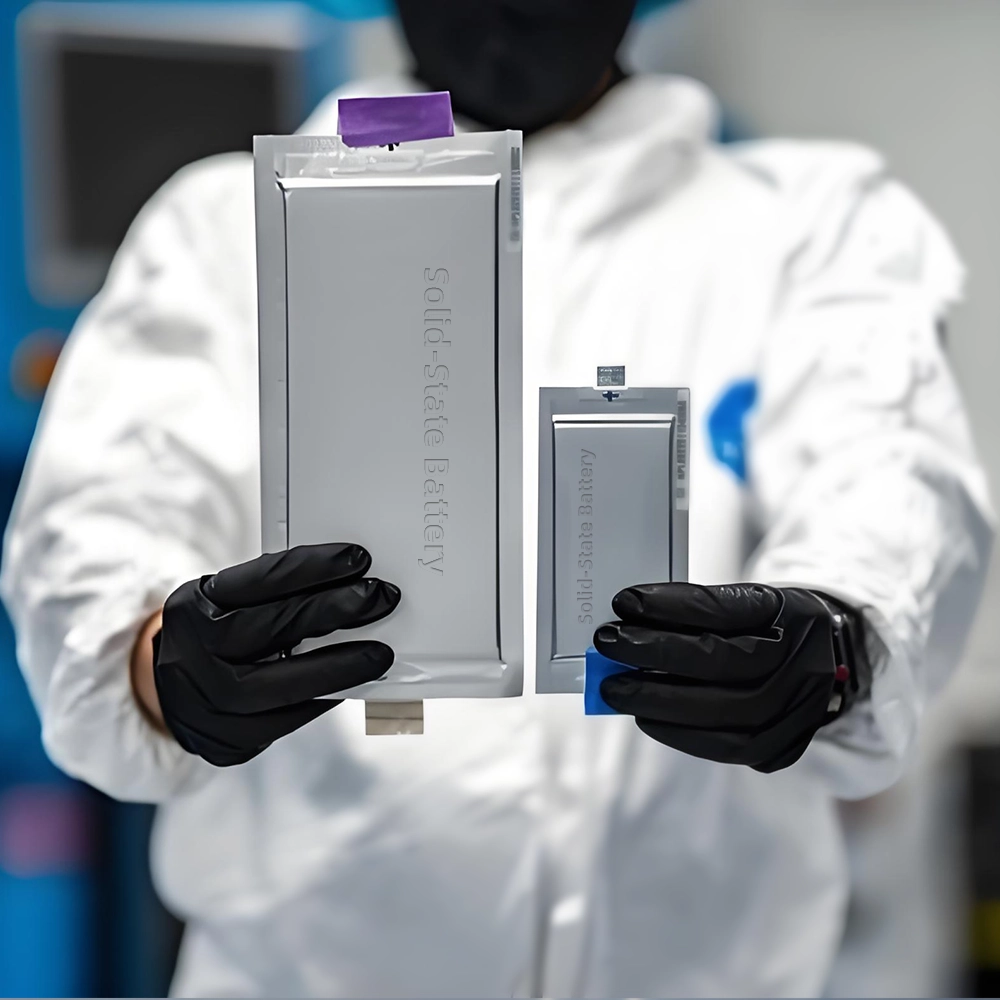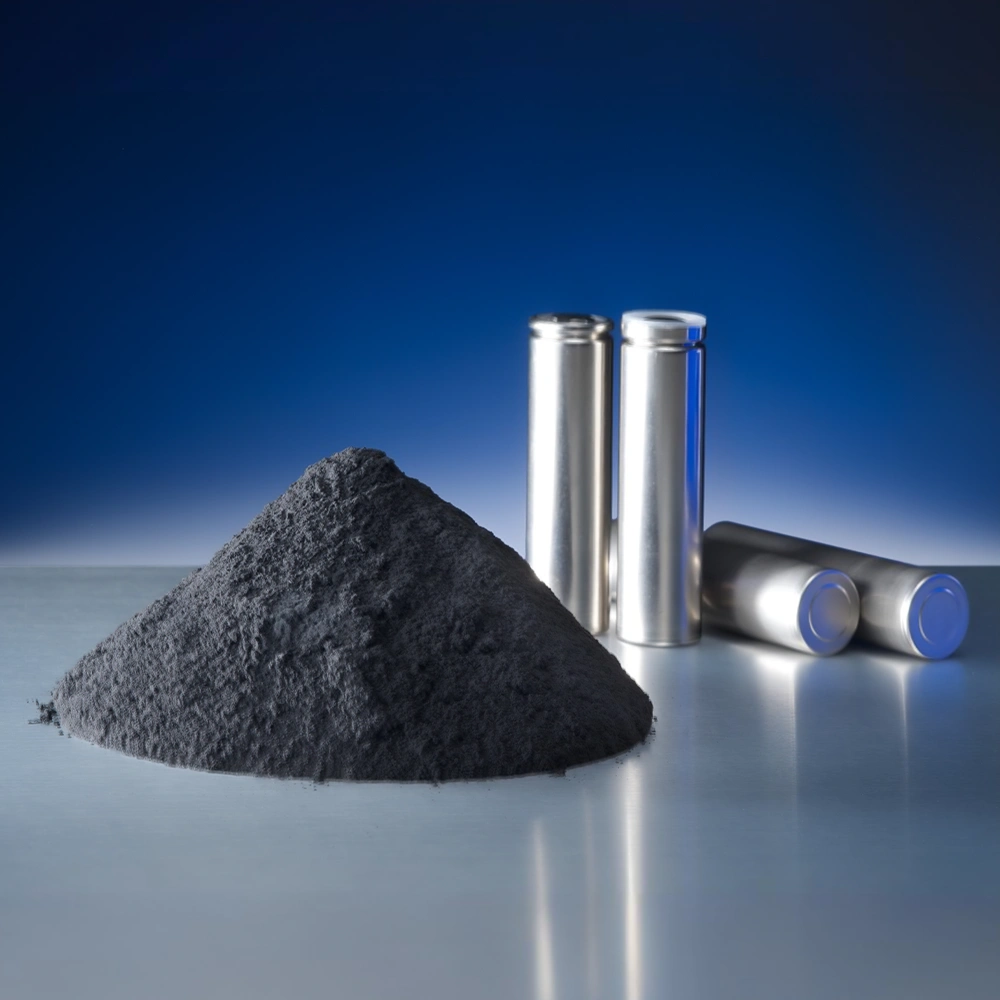
Rechargeable Sodium Metal Batteries (RSMBs) have garnered extensive attention as one of the most promising energy storage technologies due to their high energy density and low cost. However, practical applications of metal sodium batteries still face challenges such as the instability of the solid electrolyte interphase (SEI) and the continuous growth of dendrites, which deteriorate the cycling stability of the batteries and give rise to safety concerns, thereby limiting further practical applications.
In light of this, research teams led by Yan Yu, Yao Yu and Meng Gu, theoretically predicted and successfully constructed a Ni₃S₂/Ni₃P heterostructure with a high work function. This structure effectively reduces the Fermi level, thereby suppressing the continuous electrolyte decomposition caused by the electron tunneling effect during long-term sodiation processes. Additionally, the authors successfully introduced the Ni₃S₂/Ni₃P heterostructure onto a three-dimensional porous nickel foam, resulting in the synthesis of Ni₃S₂/Ni₃P@NF material, which serves as an advanced sodium anode current collector. The composite sodium anode (Ni₃S₂/Ni₃P@NF@Na) not only exhibits stable plating/stripping processes for 5000 hours but also demonstrates 2500 cycles with high average coulombic efficiency (99.7%). This work was published in the prestigious journal Advanced Materials, with Huijuan Huang as the first author.

In this research project focused on battery material investigations, all electrochemical performance tests were conducted using NEWARE battery testing equipment. The test results clearly demonstrate the high accuracy and stability of this equipment, making it the preferred choice for battery testing.

As a manufacturer of battery testers, NEWARE is committed to supporting the development of the battery industry. We offer battery testers for all types of batteries, including button batteries, pouch batteries, and cylindrical batteries. Even for automotive batteries with large testing voltage and current requirements, we have corresponding battery testers.




The lab focuses on solid-state battery research to overcome traditional lithium batteries' safety and energy density issues, supporting environmental sustainability. It develops innovative solid-state electrolytes, refines electrode materials, and investigates ion transfer and interface stability to revolutionize battery technology.

The electric vehicle battery industry is rapidly developing, focusing on technological innovation, market competition, and sustainability. Research hotspots include solid-state batteries, new types of electrolytes, BMS optimization, and recycling technologies. The environmental adaptability, safety, and economic viability of batteries are key research areas, and the industry is expected to undergo more innovation and transformation.

We specialize in battery preparation technology research, focusing on overcoming existing energy storage challenges by innovating in electrode materials, battery chemistry, and manufacturing processes to improve performance, enhance safety, and reduce costs. Sustainability and recycling technologies for batteries are also emphasized to mitigate environmental impacts and foster the growth of green energy.